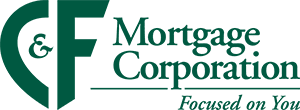Mortgage Terms to Know Before You Buy
Buying a home can seem like an intimidating process, but it doesn’t have to be. Having a great lender and real estate agent in your corner can make for a pleasant experience – however, it can’t hurt to know some of the most common mortgage terms before you dive in. Your lender is a great resource for all things mortgage-related, but he or she will certainly be impressed by you studying up on your mortgage skills!
Fixed-Rate Mortgage – This type of mortgage has an interest rate that remains the same for the life of the loan. This means your principal and interest payment would always be the same, except for potential fluctuations in taxes, insurance, or HOA dues.
Adjustable-Rate Mortgage –
Annual Percentage Rate – Also known as APR, this is representative of the interest rate paid annually on your mortgage plus any lender fees. Often, when you’re in the market for a mortgage, you’ll see two rates listed – the interest rate is lower and the APR is the higher of the two.
Interest Rate – This rate is based on a percentage of the amount you borrow and is determined by your lender. Interest rates can be impacted by your financial history and credit score, and also fluctuate based on the current market.
Appraisal – This is a process by which an appraiser visits a home to determine its value. The appraiser bases this on the home’s appearance and condition as well as the local real estate market for comparable homes.
Down Payment – Many mortgage programs require at least a small percentage of cash upfront when buying a home. The amount paid will be based on a percentage of the home’s purchase price. While it’s not required to put 20% down, doing so allows you to avoid mortgage insurance. However, there are many low to no down payment options that are favorable among first-time buyers.
Closing Costs – This number encompasses all settlement costs for completing your mortgage transaction. This includes title fees, taxes, appraisal fees, your credit report, inspection fees, attorney fees, and more.
Debt-to-Income Ratio – Also known as DTI, a debt-to-income ratio is a calculation of your gross monthly income to your monthly expenses. This ratio helps lenders determine your creditworthiness and ability to take on a mortgage.
Prequalification – To become prequalified, a lender takes a high-level look at your financial situation and credit history. This insight will help the lender determine which loan programs may be right for your needs and will help you have a better understanding of what you can afford when buying a house.
Mortgage Insurance –
Understanding these terms (among others) will help you navigate the mortgage process a bit more smoothly. Fortunately, our team at C&F Mortgage is there for you every step of the way on your home buying journey. Get in touch with one of our local industry experts today to get started!
To view our library of common mortgage terms, visit: cfmortgagecorp.com/glossary

